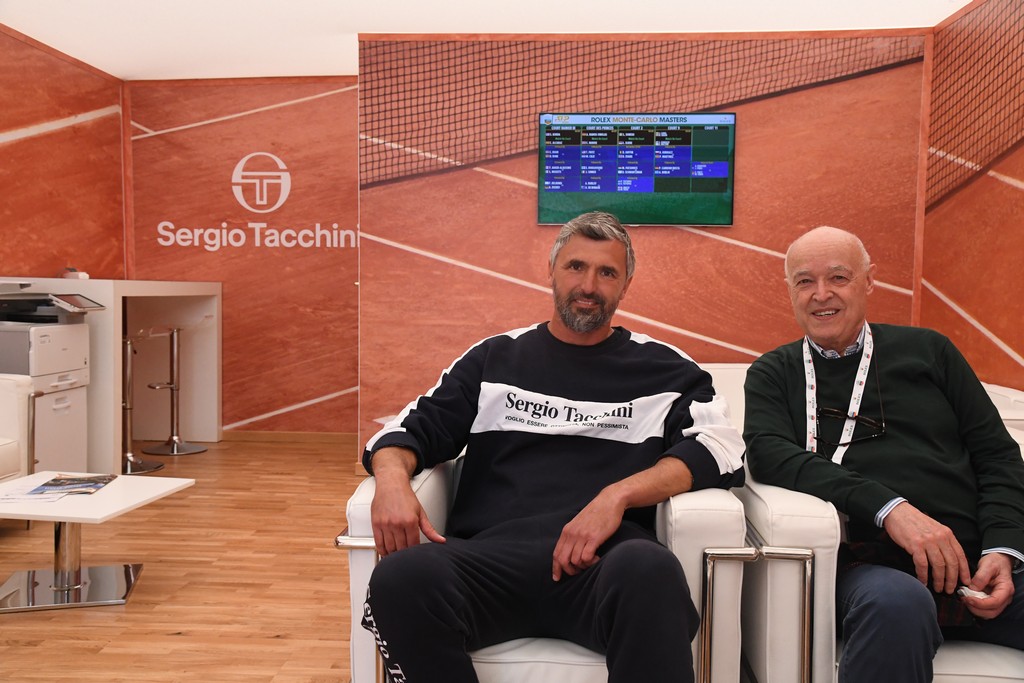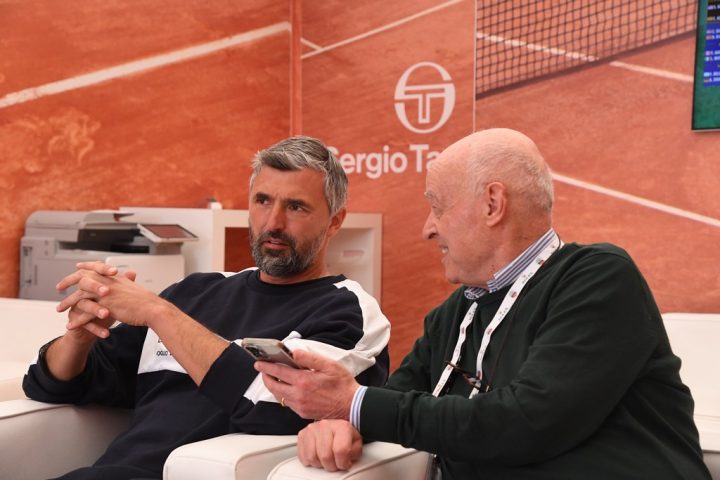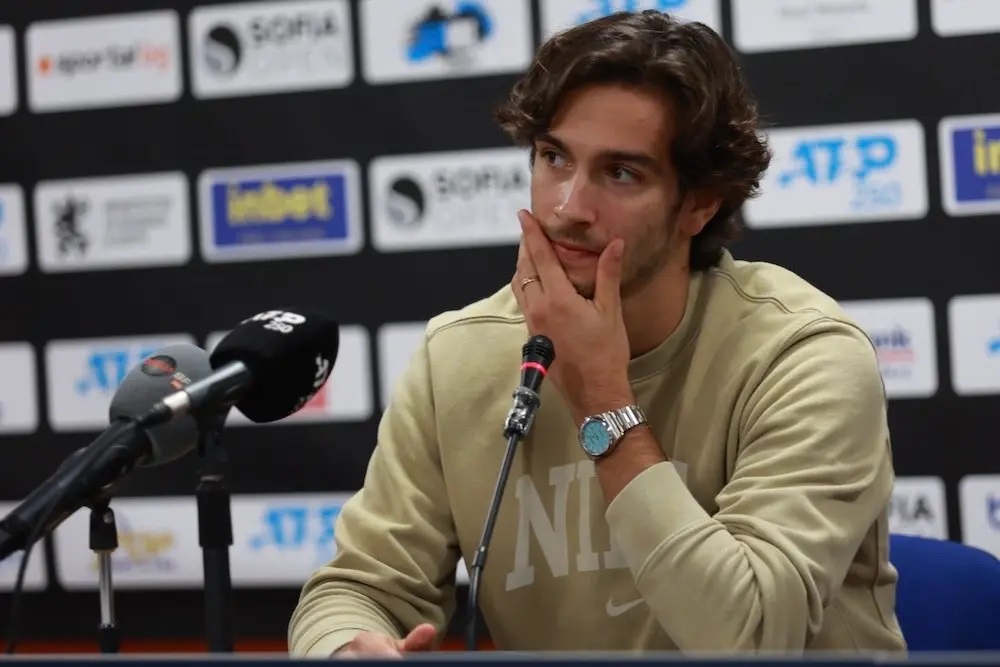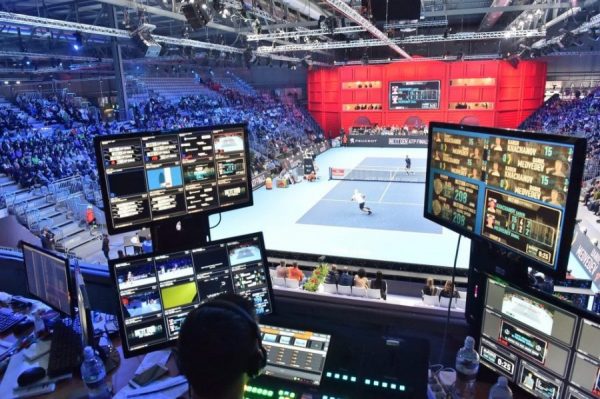Goran Ivanisevic is a name embedded in tennis history. His run to the 2001 Wimbledon title as a wildcard stunned the Tour and made headlines around the world. As a player he peaked at a high of No.2 in the world and won 22 ATP titles. Once his professional career came to an end, Ivanisevic found success as a coach and has worked with 20-time Grand Slam champion Novak Djokovic since 2019.
During this week’s Monte Carlo Masters, UbiTennis sat down with 50-year-old Ivanisevic to discuss his own experiences in the sport and the current state of Djokovic’s form.
UBITENNIS: Good morning Mr Ivanisevic. We met many many years ago. You also played the final at the tournament in my hometown, Florence.
Ivanisevic: Yes, it was one of my first.
UBITENNIS: When you were a kid. But in Italy you also had a great story as a junior: the Trofeo Bonfiglio, the Avvenire title.
Ivanisevic: Yes. I started at Avvenire, Bonfiglio. After that I went to Florence, Milan Indoor. I also won the doubles with Omar Camporese. Also in Florence I played the final with Diego Nargiso.
UBITENNIS: That was a major achievement! Not easy to bring him to the final…
Ivanisevic: (laughs) Italy first of all is a neighbouring country, very close to my hometown, Split. I love Italy. I always play well in Italy. They like me there. I’ve got good memories.
UBITENNIS: I remember you also played very well in Rome, once.
Ivanisevic: Yes, till the final. But in the final I didn’t show up. (In Rome 1993 Jim Courier defeated Ivanisevic 61 62 62)
UBITENNIS: What did you do the night before?
Ivanisevic: Actually nothing. I went to sleep at 9.30 in the evening. That’s maybe the problem.
UBITENNIS: You weren’t used to it!
Ivanisevic: I was too rested…
UBITENNIS: I remember one great moment when Marin Cilic won the US Open. Was it one of the best experiences you had as a coach?
Ivanisevic: Oh yes. It was my first coaching experience. The win for Marin was a very impressive thing, in the years when all these three guys were dominating. It only happened with Marin, (Stan) Wawrinka and (Juan) Del Potro. And (Andy) Murray of course. That was a very impressive thing. That was the beginning of my coaching career. Yes. It was really an incredible feat. Nobody really expected Marin to win. He played unbelievable tennis. And the way he played the last three matches, (Thomas) Berdych, (Roger) Federer, (Kei) Nishikori…he destroyed everybody.
UBITENNIS: I’m not saying this just because I’m interviewing you, but in my rankings of attending a press conference when I say who the best people to talk to are, I say No.1 Goran Ivanisevic, No. 2 Goran Ivanisevic, No.3 Goran Ivanisevic, No.4 Andy Roddick. No.5 I don’t remember. I remember Wimbledon 2001, that year was unbelievable.
Ivanisevic: Yes, that was an interesting 15 days. But I had fun with the journalists, I had fun in the press conferences. Maybe sometimes I was too honest. About my game, about describing whatever I saw, saying whatever I thought, and you loved it. I had fun. We all had fun. Times have changed. It’s all different. Now every PR tells you that you have to know what you are saying. I actually enjoyed those times, those press conferences.
UBITENNIS: Do you remember when you said there were three different Goran Ivanisevic’s?
Ivanisevic: The good one, the bad one, the 9-1-1 the emergency! It created a good story. To cover myself, have fun, and to win the tournament.
UBITENNIS: And now, what is the experience with Djokovic? First of all we could start from the end. The end which is yesterday. He didn’t play his best but, as you said to me, he wasn’t feeling well.
Ivanisevic: He wasn’t feeling well before he came here. He was sick. Let’s say he’s not fit one hundred percent to compete. First of all in this situation. Three weeks ago he was not allowed to play here because of the Covid decision. Then France opened and he was allowed. And it’s difficult mentally. You can play to the semifinals. But you can’t prepare the way you would need to. And then he got sick. And, to be honest, I didn’t expect something spectacular from this tournament. But he’ll be going to the French Open in five/six weeks, he’s got a couple more tournaments and he will be ready.
UBITENNIS: Don’t you think that if he had won against Fokina Davidovic, since he had to play second round against Goffin or Evans, not heavyweight players, they don’t hit as strong as Davidovic, he could have found his form round after round and maybe go to the end?
Ivanisevic: You never know. This guy for me is the best player in the history of tennis. He always finds a way to win, he always finds a way to get out of trouble. About yesterday first of all, he was supposed to win the second set 6-0. One moment he was losing three love when he was supposed to be leading three love. He had break points and game points. He lost a lot of energy. But he’ll find his way out of this in his constant playing. He only had three matches prior to this tournament. Clay is not easy. Last year he started pretty badly here, he lost to Evans in the second round. Then in Belgrade he lost in the semis. He started to play well in Rome where he got to the final, then he won the French Open. So I’m not worried. He just needs some continuity, he needs to play more and more matches and he’s going to find his way.
UBITENNIS: Last year he decided to play the Olympics when was running to complete the famous Grand Slam. Wasn’t it too much? Do you think he maybe shouldn’t have gone there? Was it a matter of pride because it was his country?
Ivanisevic: First of all he’s very proud and he loves to play for his country. Every Davis Cup he’s played, every Olympic…
UBITENNIS: You like this, don’t you? You were like that.
Ivanisevic: No one could stop him from playing in the Olympics. I don’t think he made a mistake. I just think he made a mistake playing the mixed doubles. That was not necessary, because in the end he was tired. He didn’t even play for third or fourth place. I don’t think that because of this he lost the final of the US Open. (Daniil) Medvedev was very good. You can never underestimate him at any time. He’s an unbelievable player. He was a better player that day. But Novak was not Novak. Something was missing. But again, I don’t think it was because of the Olympics. It just happens. It happened in a bad moment. It happened in the most important match. Probably it would have been the history of tennis to win after… so many years. The first guy who had the chance to complete the Grand Slam in the same calendar year.
UBITENNIS: A little bit like Serena Williams when she missed the Grand Slam losing to Roberta Vinci in 2018.
Ivanisevic: It can happen, but he’s human, he can have these days like that. But when you have Medvedev on the other side of the net you need to be one hundred percent.
UBITENNIS: I’d like to ask you a few last questions. First of all, how did you react? Did you try to convince him to have a different schedule this year? There is this famous problem of the COVID-19 vaccination.
I also wonder – you are Croatian, he is Serbian: you seem to always be friends. I also see the journalists, they are friends. Croatian and Serbian now are friends. How has this changed so much in the last few years?
Ivanisevic: I wouldn’t say it happened just now. The war finished twenty years ago. Politicians sometimes have problems, not only in our country, but everywhere in the world. We are all friends, we speak the same language. That’s helpful. About another schedule, that’s impossible. Like I said before, three weeks ago he was not allowed to play here by the vaccine rules.
UBITENNIS: Did you try to persuade him to have the vaccine? Or didn’t you even try? I know everyone is a person…
Ivanisevic: It’s his life, his decision. I respect his decision, his family. He said it truly that he’s going to risk his career. I even love him more for that because he’s standing by what he’s saying. He’s the only person in the world who says what he thinks. You know, one day they say one thing, one day they say another. He, from the beginning, is straight and this is why I respect him even more. Hopefully this pandemic is going to stop. Only now he can play all the tournaments. I hope that America will open so he will be able to play the US Open in September.
UBITENNIS: Are you going to follow him in all the tournaments before the Roland Garros?
Ivanisevic: We need to talk first today, to see what the schedule is going to be. He’s going to play all and we’ll see how things are developing and we’ll decide day by day.


 Hot Topics3 days ago
Hot Topics3 days ago
 Latest news3 days ago
Latest news3 days ago
 Hot Topics2 days ago
Hot Topics2 days ago
 Hot Topics3 days ago
Hot Topics3 days ago
 Focus2 days ago
Focus2 days ago
 Focus2 days ago
Focus2 days ago
 Focus2 days ago
Focus2 days ago
 Hot Topics2 days ago
Hot Topics2 days ago

























